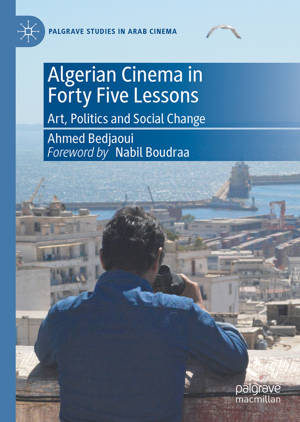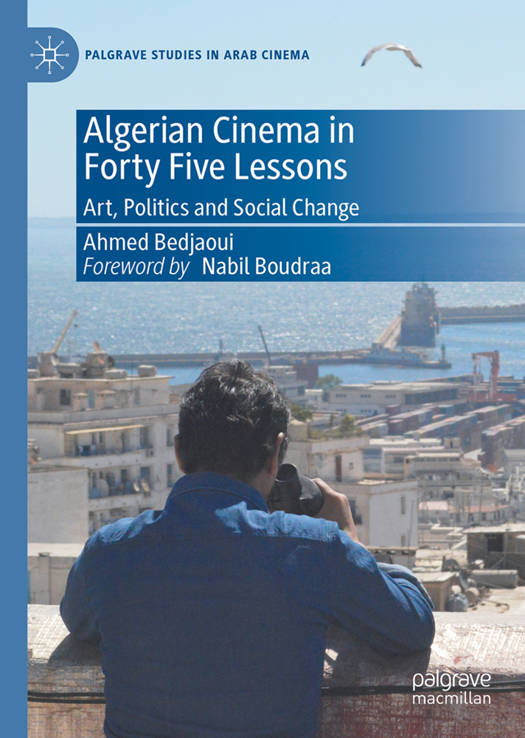
- Retrait gratuit dans votre magasin Club
- 7.000.000 titres dans notre catalogue
- Payer en toute sécurité
- Toujours un magasin près de chez vous
- Retrait gratuit dans votre magasin Club
- 7.000.0000 titres dans notre catalogue
- Payer en toute sécurité
- Toujours un magasin près de chez vous
Description
Algerian Cinema in Forty Five Lessons offers a fresh approach to examine the history of Algerian cinema, from its inception to the present day, providing in-depth analysis of forty five key films. While most scholarly and critical work on Algerian cinema continues to centre on the War of Independence and those films engaging with it, Dr Ahmed Bedjaoui argues that this thematic dominance has overshadowed many other important aspects of Algerian film history. Further, Bedjaoui examines how "revolutionary" films have frequently depicted an idealized image of a heroic, flawless and fearless figure which has been strategically crafted to legitimize national authority at different points in time.
This book offers a new reading, which involves rehabilitating some major but underestimated works, as well as questioning other films primarily known for their contribution to the Algerian national story. Among the works studied, certain productions offer a less Manichean vision of the War of Independence, while explaining the process that led to it. Above all, Bedjaoui strives to bring out of the shadows films of great artistic value (sometimes produced by state television), and compares the productions of the so-called golden age (1960s and 1970s) with the films made by the following generations, in terms of both creativity and capacity to reflect the specificity of Algerian society.
Through a contextualization of forty specific films, this book provides a deep analysis of the changes which occurred in the heart of Algerian society, moving from an all-socialist to an all-protectionist state, before being later threatened by religious fundamentalism. Engaging and accessibly written, and including coverage of many films never written about in English-language histories of Algerian cinema, this book is an essential resource for understanding this dynamic and vital film culture.
Spécifications
Parties prenantes
- Auteur(s) :
- Editeur:
Contenu
- Nombre de pages :
- 178
- Langue:
- Anglais
- Collection :
Caractéristiques
- EAN:
- 9783031722936
- Date de parution :
- 02-03-25
- Format:
- Livre relié
- Format numérique:
- Genaaid
- Dimensions :
- 161 mm x 216 mm
- Poids :
- 371 g

Les avis
Nous publions uniquement les avis qui respectent les conditions requises. Consultez nos conditions pour les avis.






